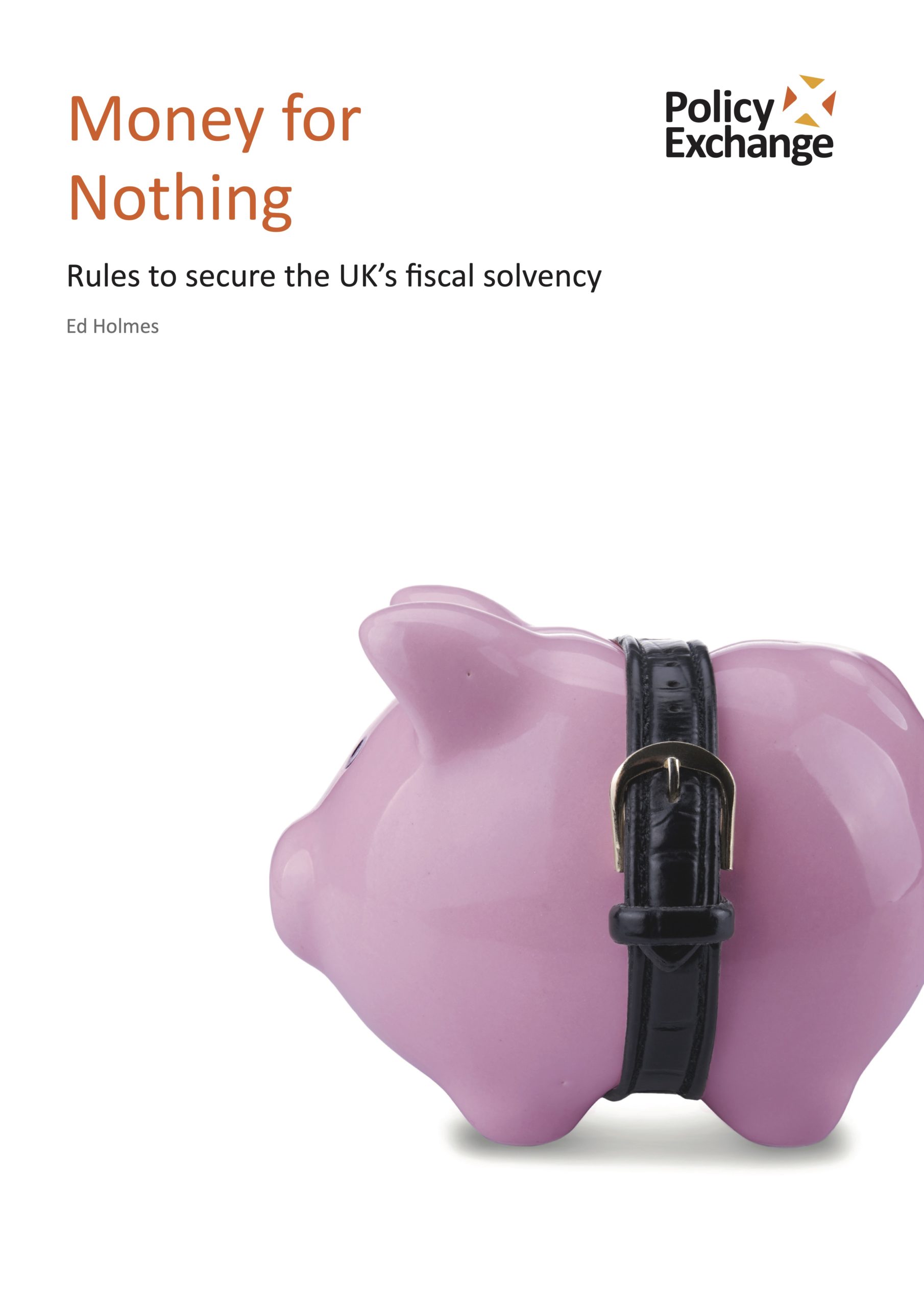
Money for Nothing: Rules to secure the UK’s fiscal solvency
The UK will continue to have one foot hovering precariously over a fiscal abyss unless the next government draws up a strong set of rules to tackle the £1.1 trillion national debt.
Money for Nothing argues that new fiscal rules should bind future governments to a spending envelope based on reducing the UK’s debt-GDP ratio to a sustainable level. It is currently projected to exceed 100% of GDP by 2015, the highest level since modern records began. Strict penalties would be put in place to ensure that politicians stayed within the rules including automatic nominal freezes to public sector pay, the state pension and benefit payments.
Since 1965, the UK will have borrowed more than it has taken in for 49 out of the 53 years. Without a clear set of fiscal rules, strictly enforced by the Office for Budget Responsibility (OBR), the UK will remain too indebted, causing the economy to grow more slowly and limiting its ability to take effective tax and spending decisions to combat future recessions. Other challenges – such as an ageing population and a decline in North Sea oil production and revenue – make having this flexibility even more important.
The report found that:
- Between 1997 and 2010 the UK saw the largest increase in public spending as share of national income of any comparable industrialised country.
- Tax receipts remained stable between 36.2% to 38.7% of GDP but public spending rocketed from 34.6% of GDP in 2000 to 47.4%, in 2010 – a level not seen since the UK’s IMF bailout in 1976. Half of this increase had occurred by 2005 – well before the recession. The UK entered the financial crisis with a significant fiscal deficit, limiting its ability to tackle the recession.
- Public sector net borrowing in 2010 was higher than at any time since records began in 1948 and higher than any member of the G20 except the United States.
- The UK is projected to borrow an additional £371 billion between 2013/14 and 2017/18, increasing the public sector net debt to a total of £1.47 trillion.
The new fiscal rules would complement the Chancellor’s recent announcement to run a budget surplus by the end of the next Parliament. To consolidate these gains it will be necessary to develop longer-term fiscal institutions which respond to economic needs outside those of the electoral cycle.
The Rules
- The overall fiscal mandate should be based on a zero public sector net cash deficit when the economy is at full output i.e. no net borrowing.
- Subsequent to 2017/18, a supplementary rule should target a reduction in the debt to GDP ratio i.e. an additional 1% of nominal GDP fiscal surplus would return public sector net debt to its pre-financial crisis in 16 years (2034/35). This would ensure future governments are not able to covertly spend or commit to the future spending of public money without affecting the fiscal rules
- The OBR should ensure that these rules are met. If any breach occurs, a payback mechanism should mandate that any deficit outside the rules has to be repaid with 5 years. The Chancellor would have to call an Emergency Budget if the rules are breached setting out how he/she intends to return the fiscal balance and report to the house on a quarterly basis.
- If this Budget is breached 30 days before the beginning of the fiscal year this will trigger automatic freezes to indexation of tax allowance thresholds, public sector pay, the state pension and benefit payments.

